In the intricate dance of business, bargaining power dictates who leads and who follows. It’s the silent game-changer, guiding negotiations and shaping outcomes. For startups and scale-ups, understanding this concept is not just beneficial—it’s crucial.
Without recognizing and wielding their bargaining power, businesses risk being outmaneuvered, missing opportunities, and losing profit potential. Enter Pecunio Solutions, a pioneer in strategic financial solutions, helping businesses harness their bargaining power for sustained growth. In this post, we will unpack the depths of bargaining power and reveal how it can transform your business dynamics.
Cracking the Code Understanding Relative Bargaining Power
Bargaining power is the ability of one party to influence another in negotiations. It’s a fundamental aspect of business interactions that can dictate terms, prices, and even the longevity of business relationships. Companies with greater bargaining power can negotiate agreements more in their favor, squeezing better terms and benefits.
But factors like market conditions, competition, and industry dynamics all influence this power. Recognizing these factors can mean the difference between thriving and merely surviving, as bargaining power increases can lead to more confident and determined negotiations, resulting in better outcomes.
Types of Bargaining Power
Bargaining power can manifest in various forms, influencing the dynamics of negotiations and business relationships. Understanding these types is crucial for effective negotiation strategies and optimal outcomes.
Relative Bargaining Power: This type of bargaining power refers to the comparative ability of two parties to exert influence over each other in a negotiation. It is often determined by factors such as market conditions, the availability of substitute products, and the relative capacity of each party to walk away from the negotiation. For instance, a supplier with unique, high-demand products will have strong relative bargaining power over buyers who have few alternatives.
Greater Bargaining Power: A party with greater bargaining power holds a significant advantage in negotiations. This can stem from a monopoly or monopsony position, high switching costs for the other party, or a strong brand reputation. For example, a tech giant with a dominant market share can dictate terms to smaller suppliers due to its substantial influence and the high cost for suppliers to switch to other buyers.
Equal Bargaining Power: In situations where both parties have equal bargaining power, negotiations are more likely to result in mutually beneficial agreements. This balance often occurs in perfectly competitive markets or when both parties have similar market shares and negotiating skills. For instance, two companies of equal size and market influence negotiating a partnership are likely to reach a fair and balanced agreement.
Weak Bargaining Power: A party with weak bargaining power is at a disadvantage in negotiations. This often results from a lack of market share, high dependence on the other party, or limited negotiating skills. For example, a small startup negotiating with a large, established corporation may find itself with weak bargaining power due to its limited influence and high dependency on the deal.
By understanding these different types of bargaining power, businesses can better assess their position in negotiations and develop strategies to enhance their leverage.
Whether it’s through improving product quality, building brand loyalty, or exploring backward and forward integration, recognizing and strengthening your bargaining power can lead to more favorable negotiated agreements and long-term success.
The Five Forces Dynamics of Bargaining Power of Suppliers
Renowned strategist Michael Porter introduced the Five Forces framework, spotlighting the bargaining power of buyers and the bargaining power of suppliers. For instance, if there are only a few buyers for your product, they hold the power. Conversely, if there are numerous suppliers but few buyers, the power shifts to the buyers.
Suppliers bargaining power can significantly influence pricing, quality, and overall profitability, shaping the competitive dynamics within an industry. In industries where substitute products are abundant, the bargaining power of buyers increases as they can easily switch suppliers. Porter’s analysis helps businesses understand where they stand in their industry, providing them with the data to strategize effectively.
The Game Theory Angle Exploring Bargaining Power
Game theory, the study of strategic interactions, offers profound insights into bargaining power in business negotiations. The generalized Nash bargaining solution is a critical concept within a bargaining framework involving unions and firms, helping to determine wage agreements by maximizing the product of each agent’s gains from the bargain, taking into account their respective bargaining strengths. It’s about predicting how others will react to your moves.
A classic example is the “prisoner’s dilemma,” where two parties must decide between cooperation and competition without knowing the other’s choice. In business, understanding these dynamics can help you anticipate moves, negotiate better, and align strategies for a favorable outcome. By applying game theory, businesses can create scenarios where their bargaining power naturally increases.
Strategies for Strengthening Strong Bargaining Power
Businesses can enhance their strong bargaining power through various strategies. One effective method is backward and forward integration. By controlling more aspects of the supply chain, companies reduce dependency on suppliers, increasing their leverage.
Enhancing product quality can also shift bargaining power. When your product stands out, customers are more willing to meet your terms. Building brand loyalty ensures a steady customer base, reducing the impact of competitors’ offers. Companies that master these strategies often find themselves in a position of strength, regardless of market conditions.
Bargaining Power in Business Finances
Understanding how bargaining power affects business finances is key to ensuring financial stability and growth. This section dives into the various ways bargaining power plays a pivotal role in different financial aspects of a business.
Cost Management
Bargaining power significantly impacts cost management by allowing businesses to negotiate better terms with suppliers. Strong bargaining power can lead to lower purchase prices, more favorable payment terms, or access to exclusive supplier deals. This power helps businesses maintain or improve their profit margins, enabling them to reinvest savings into other areas of their operations.
Pricing Strategy
With substantial bargaining power, businesses can influence their pricing strategies more effectively. The ability to negotiate better supply costs directly affects how products and services are priced. This advantage gives companies the flexibility to offer competitive pricing to their customers while maintaining profitability, which is critical in markets with tight competition.
Capital Access
Businesses with high bargaining power can negotiate better terms for financing, whether it be through loans or investor agreements. They might secure lower interest rates, better repayment schedules, or more favorable investment terms. This increased access to capital on favorable terms enhances their ability to fund new projects, expand operations, and invest in innovation.
Financial Stability
Ultimately, a business with substantial bargaining power is likely to enjoy greater financial stability. By controlling costs, setting optimal pricing, and securing better financing terms, such businesses are well-positioned to withstand market fluctuations and economic downturns. Their financial resilience enables them to sustain operations and pursue growth opportunities even in challenging circumstances.

Pecunio Solutions The Bargaining Power Advantage
Pecunio Solutions has mastered the art of leveraging bargaining power. With insights from large corporations and a focus on startups and scale-ups, they understand how to boost a company’s bargaining power.
Their strategic financial services emphasize operational excellence, guiding businesses toward efficient scaling. Pecunio’s expertise ensures that companies not only recognize their bargaining power but also use it effectively to achieve their goals.
By partnering with Pecunio, businesses gain a competitive edge in negotiations, leading to better terms and increased profitability.
Winning the Business Game
Understanding and leveraging bargaining power is essential for business success. There is little doubt that mastering this concept can significantly impact your business outcomes. Whether it’s negotiating with suppliers or setting terms with customers, the ability to influence outcomes is invaluable.
For startups and scale-ups, mastering this concept can lead to significant growth and sustainability. Pecunio Solutions offers the expertise and strategies to enhance your bargaining power, ensuring your business thrives in a competitive landscape. Step into the future of business with Pecunio, and watch your bargaining power transform your bottom line.
For those ready to elevate their business dynamics, Pecunio Solutions offers a free strategy session to assess and enhance your bargaining power. Engage with them today, and unlock the potential lying within your business.
Resources
To enhance bargaining power, small businesses can utilize a variety of resources. Here is a list of some valuable tools and sources of information that can aid in building a more strategic negotiation stance:
Small Business Administration (SBA): Visit Website – Offers guidance, training, and financial resources to help small businesses improve their operations and negotiations.
SCORE: Visit Website – Provides free mentoring and workshops to help small business owners enhance their skills and strategies, including negotiation techniques.
Local Chamber of Commerce: Find Your Local Chamber – Connect with other local businesses, access networking opportunities, and gain insights into market trends.
Business Negotiation Courses (Coursera, edX): Business Negotiation Skills on Coursera
National Federation of Independent Business (NFIB): Visit Website
Offers legal guides, advocacy resources, and networking groups to support small businesses in gaining stronger bargaining positions.
LinkedIn Learning: Visit Website – Access a wide range of video courses on negotiation tactics, effective communication, and business strategy development.
Harvard Business Review (HBR): Visit Website – Provides articles and case studies on innovative negotiation techniques and thought leadership in business management.
The Association of Negotiation Business Leaders (ANBL): Visit Website – An organization dedicated to providing members with negotiation skills workshops, seminars, and certifications.
These resources offer further avenues for small business owners to acquire new skills, enhance their negotiation strategies, and build essential networks, ultimately enabling them to thrive in competitive markets.

